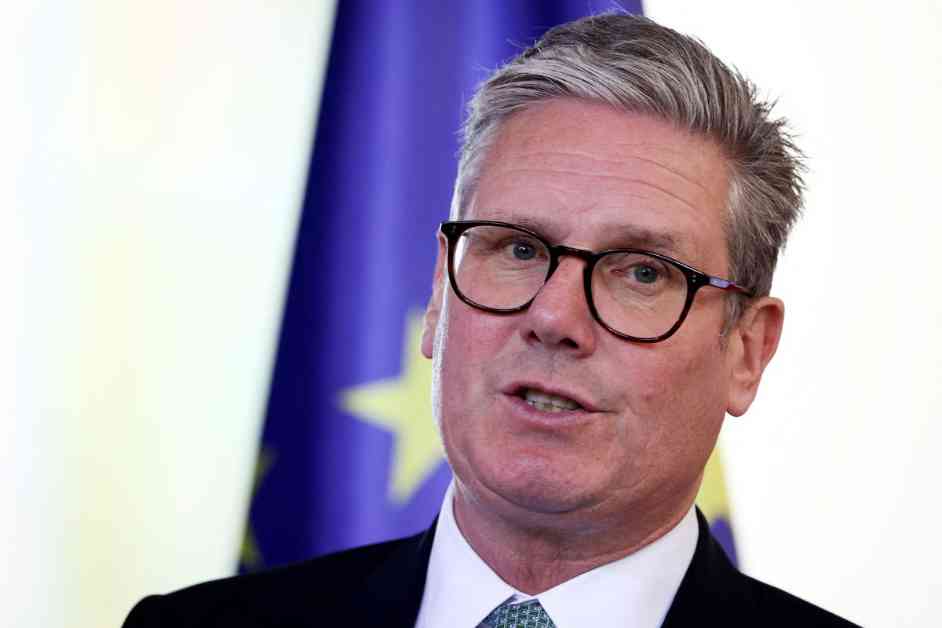Trade Expert Warns of Worsening Brexit Trade Figures
One of Britain’s leading trade experts, Marco Forgione, the director general of the Chartered Institute of Export and International Trade, has raised concerns about the potential negative impact of the new border checks system for goods traded between the UK and the EU. While the delay in implementing checks for fruit and vegetables at the border has been welcomed, there are still fears that the Border Target Operating Model (BTOM) could exacerbate the already dire trade figures between the UK and the EU.
Impact of Brexit on UK Trade
Recent research conducted by Aston University has shed light on the profound negative impact Brexit is having on UK trade. The study revealed that both goods exports and imports are suffering due to bureaucratic barriers imposed post-Brexit. Yearly exports to the EU have decreased by 17% while imports have plummeted by 23% compared to if the UK had remained in the EU. These figures highlight the significant challenges faced by UK businesses as they navigate the new trade landscape post-Brexit.
Challenges of the Border Target Operating Model (BTOM)
Marco Forgione emphasized the importance of handling the implementation of BTOM with care to avoid exacerbating existing trade challenges. While the recent delay in fruit and vegetable checks is a positive development, there are concerns about the potential impact of the BTOM on trade flows. Businesses on both sides of the UK-EU border are facing increasing costs and uncertainties, with some considering halting trade with the UK due to these challenges. The classification issues and invoicing delays related to BTOM inspections have further added to the confusion and financial burden on businesses, ultimately impacting the cost of living for consumers.
Moreover, the Chartered Institute of Export and International Trade has highlighted the need for a clear and efficient border system that facilitates trade rather than hindering it. The goal of BTOM should be to create a seamless and digital-first border framework that supports businesses in their trading activities. However, the current challenges and uncertainties surrounding the implementation of BTOM raise concerns about its effectiveness in achieving this objective.
The warning from the trade expert and the findings from Aston University come at a critical juncture as the UK government and political leaders grapple with the repercussions of Brexit on trade relations. The discussions around renegotiating aspects of the Brexit deal and exploring new trade agreements underscore the complexity and urgency of addressing the trade challenges faced by the UK post-Brexit.
In response to the latest research findings, Dr. Mike Galsworthy, chair of European Movement UK, emphasized the need for a comprehensive approach to addressing the economic impacts of Brexit. He highlighted the barriers and costs directly attributable to Brexit across various sectors of the UK economy, emphasizing the potential benefits of rejoining the EU single market. The call for tougher decisions and a strategic approach to economic growth reflects the pressing need for effective measures to mitigate the adverse effects of Brexit on UK trade.
The ongoing debates and negotiations between the UK and the EU, as well as internal discussions within political parties, highlight the complexity and challenges of navigating the post-Brexit trade landscape. The contrasting perspectives on trade agreements, regulatory frameworks, and economic priorities underscore the need for a cohesive and strategic approach to addressing the trade challenges arising from Brexit.
Overall, the warnings from trade experts, the research findings on Brexit’s impact on UK trade, and the ongoing discussions among political leaders underscore the importance of addressing the trade challenges post-Brexit comprehensively. The need for transparency, collaboration, and effective policy measures to support businesses and mitigate the negative effects of Brexit on UK trade remains paramount in navigating the evolving trade landscape.












